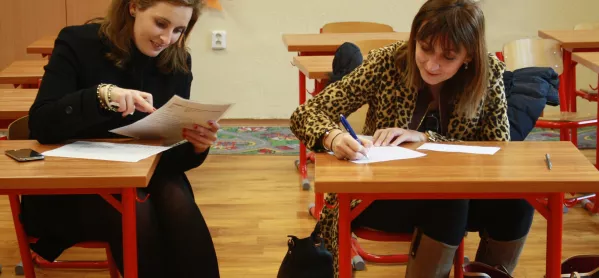- Home
- ‘Treat parental engagement like a marriage - and listen’
‘Treat parental engagement like a marriage - and listen’

Every teacher knows that one of the most important parts of teaching is establishing good relationships in (and out) of the classroom. Strong, good relationships support teaching, learning and behaviour in school.
The same is true of working with families. Everything hinges on relationships so getting those right at the outset is vital. Of course, it may not be at the outset if you’re coming into an established situation, but “established” doesn’t mean unchangeable.
The starting point for building relationships with family is so obvious that it is often overlooked. School staff and family members all want the same thing: the best for the young person in their care. It’s easy for this fundamental point to get lost amid all the information that goes back and forth: levels and homework and attainment and “please can you sign this”…There’s so much going on that often we forget the reason we’re in contact at all.
Quick read: ‘I changed how I teach after becoming a parent’
The parents’ view: What do parents think makes the biggest difference to pupil outcomes?
Parents face funding crisis: Are school fayres about to be killed off?
I often ask people how long their romantic partnerships would last if all they ever did was give their significant other information and never stopped to listen - if they never engaged in dialogue. Responses range from a few days to a few weeks, but I’ve yet to find anyone who thinks that “information sharing” could be the basis of a partnership.
Because it can’t. Partnerships are based on shared ideas and ideals, on communication and on moving toward a shared goal; in a marriage, that might be having children or retiring early; in a school, that shared goal is for the young person in question to do as well as she or he can in the schooling system.
That’s a very easy goal to articulate and a very difficult one to accomplish, but unless it’s articulated, the relationship between families and schools will never be on a solid foundation.
Let them know you care
What does this mean for school staff? It means letting parents know you care about their children. One of the things that remains with me most strongly out of all the research I’ve done is a mother saying “Now I’m happy to let my daughter stay at school; now I know that the staff really care about her.”
There are lots of ways to do this, of course, and here, actions probably speak louder than words. That means showing a parent you know their child as an individual: “Your son always has a smile”; “Your daughter knows all about dinosaurs!”; “Your child looks after their friends so well, it’s lovely to see.”
One teacher told me that she’d phoned a parent and said: “You’re worried about your daughter and I’m worried about her, too. You’re her mum, you know her better than I do - what can you tell me that will help me to help her?” It didn’t transform a difficult relationship overnight, but it went a long way down that road.
Relationships are, of course, two-way - and parents and family members have their part to play in building relationships with the school. That can mean responding to requests, or it can mean letting the school know things about the young person that will help staff to support their learning.
One of the most important things parents can do is show young people that they value learning and schooling. It’s not important that parents know the answer to every question or every piece of homework, but it is important that families show young people that they care that the answer gets found. For example, instead of asking “What did you do today?”, try asking “Tell me two things you know now you didn’t know this morning” - and be prepared to share things you’ve learned as well.
In other words, let children know that the adults around them are still learning - and value the process of learning.
Janet Goodall works in the field of parental engagement and is a consultant with parents’ organisation Connect (formerly the Scottish Parent Teacher Council). She is also an author and a lecturer at the University of Bath, and tweets @janetifImust
Connect is hosting a Twitter chat about parental engagement for educators with Dr Goodall at 8pm, Tuesday 12 March, via #janettalksparents
Keep reading for just £1 per month
You've reached your limit of free articles this month. Subscribe for £1 per month for three months and get:
- Unlimited access to all Tes magazine content
- Exclusive subscriber-only stories
- Award-winning email newsletters
